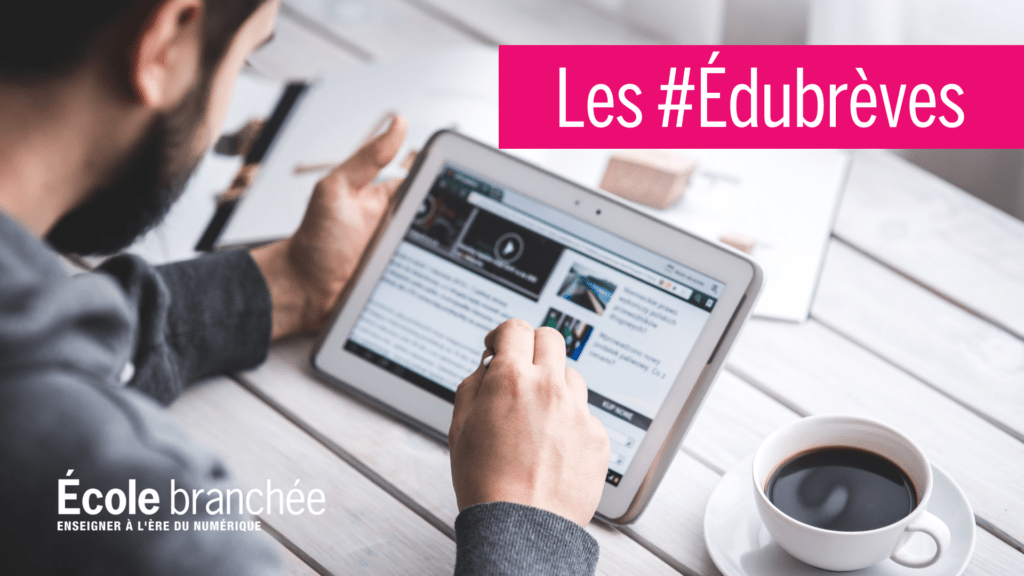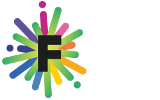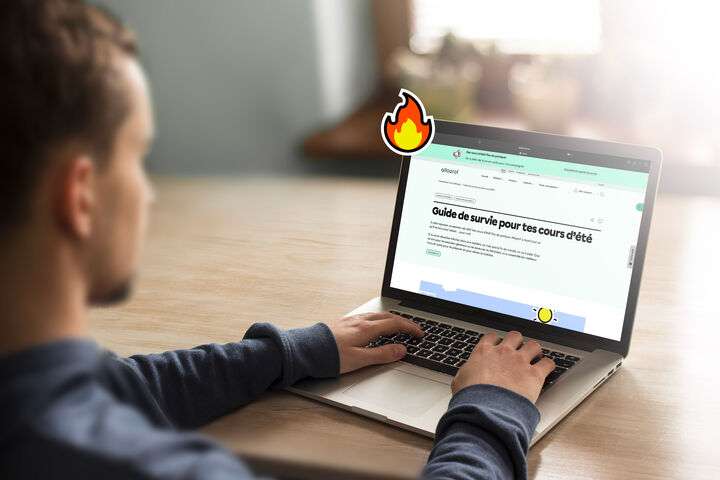Voici vos #Édubrèves. N’hésitez pas à les partager ou à m’écrire si vous avez des nouvelles à faire circuler.
Dans cette édition : la prochaine Soirée entre profs, l’Ontario modernise ses programmes d’études en informatique, plusieurs ressources pour contrer la désinformation en formant les jeunes, un jeu pour conscientiser face aux biais cognitifs, diagnostiquer l’autisme avec un jeu sérieux en réalité mixte, l’intelligence artificielle pour soutenir les étudiants, un programme pour permettre aux jeunes de développer des compétences en médiation, comprendre les algorithmes, plaidoyer pour la pensée technologique dans les écoles et bien plus!
Bonne lecture.

Attention, l’usage de GIF animés dans ce condensé de nouvelles brèves est à des fins de divertissement seulement.
Une invitation à la Soirée entre profs du 2 février
L’organisme Créativité Québec, en collaboration avec le Séminaire de Sherbrooke, tiendra une Soirée entre profs le 2 février 2023 à partir de 17 h 30.
Les participants auront l’opportunité de visionner un documentaire sur l’école et les compétences du 21e siècle : Most Likely to Succeed. Film provocateur qui a été primé à l’échelle planétaire (Sundance Festival, Tribeca Film Festival, Napple Film Festival, SBSW EDU, et bien d’autres), il partage des exemples d’écoles qui ont pris un virage centré sur des nouvelles compétences. Par la suite, des ateliers permettront d’en discuter entre collègues.
Réservez votre place. C’est gratuit.

L’Ontario modernise les programmes-cadres d’études informatiques et d’éducation technologique
Le gouvernement de l’Ontario actualise les cours du niveau secondaire touchant les disciplines liées aux STIM (sciences, technologie, ingénierie et mathématiques), notamment avec un nouveau cours d’études informatiques en 10e année et un nouveau cours d’éducation technologique en 9e et 10e année. Les programmes de sciences, technologies et mathématiques, de la 1re à la 8e année, ont déjà été mis à jour.
Le nouveau cours d’études informatiques sera offert aux élèves de 10e année dès septembre 2023. Le cours intitulé Technologies numériques et innovations dans un monde en évolution remplacera le cours actuel intitulé Introduction à l’informatique, dont la mise à jour remonte à 2008. Le contenu fournira aux élèves l’occasion de mettre en application les concepts et les compétences en codage afin de réaliser des projets pratiques et d’étudier l’intelligence artificielle, la cybersécurité et d’autres technologies numériques émergentes.

Contrer la désinformation en ligne
« Une des solutions les plus prometteuses pour contrer les informations fausses et trompeuses est de former les citoyens, surtout les plus jeunes adultes, pour qu’ils soient capables de se prémunir contre ces menaces en évaluant l’information de manière critique », croit la professeure Colette Brin, directrice du Centre d’études sur les médias (CEM) au Département d’information et de communication de l’Université Laval.
Une enquête du CEM témoigne d’ailleurs de l’efficacité d’un atelier éducatif de HabiloMédias conçu pour développer de meilleures pratiques informationnelles chez les jeunes adultes francophones.
Les participants ont « démontré une plus grande sensibilisation à la nécessité de vérifier les informations trouvées en ligne, ainsi qu’une plus grande confiance dans leur capacité à détecter les fausses informations ». Ils ont aussi diminué leur partage d’informations non vérifiées. Finalement, quatre à six semaines après avoir pris part à l’atelier, ils démontraient une amélioration de leurs attitudes et pratiques quant à la vérification d’informations en ligne.

Un jeu de société sur la désinformation
Le concepteur du jeu de société Lizards & Lies, Scott DeJong, est étudiant au doctorat en communication à l’Université Concordia. Avec son jeu, il cherche à démontrer comment circule la désinformation sur le web. La prémisse du jeu de société est simple : sur le champ de bataille des réseaux sociaux (Thoughtbook, TikTak, Shreddit et MeTube, etc.), les trolls et les conspirationnistes affrontent les modérateurs de plateformes et les éducateurs en littératie numérique.
Lizards & Lies est un projet sans but lucratif : n’importe qui peut imprimer toutes les cartes et les pièces nécessaires à partir de son site web officiel. Il existe également un prototype de plateau de jeu avec des pièces imprimées en 3D, ainsi que des versions anglaises et françaises des cartes d’action et des règles.
L’ambassade du Canada en Lituanie et le ministère de la Défense lituanienne s’apprêtent à déployer le jeu dans des écoles secondaires de ce pays.
Lisez le reportage de Radio-Canada.
L’histoire de Gabriel Bran Lopez de Fusion Jeunesse
Gabriel Bran Lopez a fondé il y a 15 ans Fusion Jeunesse, un organisme de bienfaisance consacré à la persévérance scolaire. Le journal La Presse présente un article qui permet de découvrir son parcours. Arrivé au Québec avec ses parents qui ne parlaient pas français à la fin des années 1980, il a bien failli décrocher de l’école. Aujourd’hui, l’organisme qu’il dirige offre une multitude de programmes pour donner le goût aux jeunes de rester à l’école. Les projets intégrés au programme scolaire touchent, entre autres, la robotique, le cinéma, les arts de la scène, les jeux vidéo, le design de mode ou de l’environnement et l’intelligence artificielle.
Il s’apprête à déployer ses programmes dans huit régions de la France, ce qui lui permettra de rejoindre quelque 71 000 jeunes provenant de milieux défavorisés.
Un projet étudiant de jeu vidéo gagne le prix Societal Impact Award
Réalisé par des équipes multidisciplinaires composées de programmeurs du Département d’informatique et de mathématiques, d’artistes et de designers de l’École NAD-Université du Québec à Chicoutimi (UQAC), ainsi que de compositeurs et concepteurs sonores de l’Université de Montréal, le jeu vidéo Focus a gagné le prix « Societal Impact Award » de la compétition de jeux vidéo et Chi Play 2022, l’une des grandes conférences scientifiques dédiées au jeu vidéo.
Focus est un jeu éducatif qui vise à conscientiser les élèves du secondaire sur les distorsions cognitives, un biais cognitif pouvant affecter leur interprétation d’une situation et impacter leurs émotions.
Pop’Balloons, le premier jeu vidéo sérieux en réalité mixte pour les enfants autistes
Des années de recherche fondamentale en neurosciences ont conduit à la création du premier jeu en réalité mixte pour diagnostiquer l’autisme et favoriser l’inclusion des personnes qui en souffrent. Le jeu vidéo Pop’Balloons pourrait servir dans le futur à faire des évaluations neuropsychologiques dans un milieu non médicalisé.
Découvrez la démarche de création du jeu par l’équipe de l’Université de Montréal.
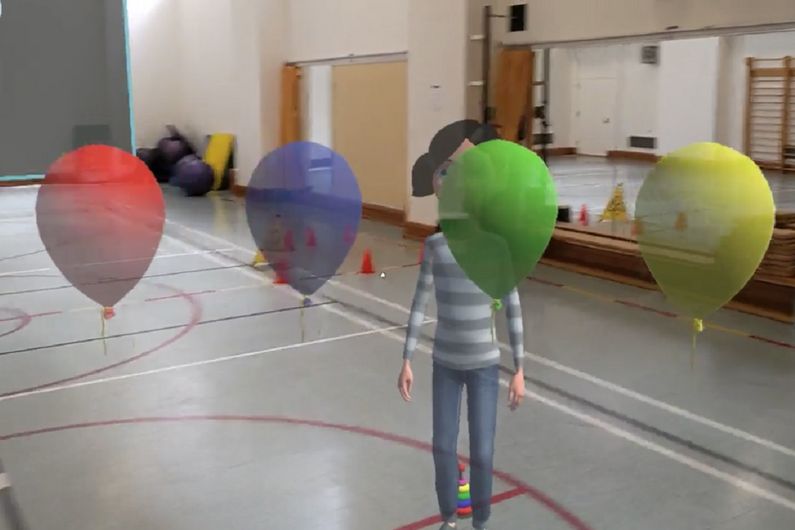
L’intelligence artificielle pour soutenir les étudiants
Le Cégep de Sorel-Tracy et sa Fondation, en collaboration avec La Traversée – Centre de crise et de prévention du suicide, rendent maintenant disponible l’application Ali à la communauté étudiante. Il s’agit d’un outil conversationnel qui utilise l’intelligence artificielle pour contribuer à la réussite et au soutien psychosocial. Il vient en appui aux ressources déjà en place en les guidant vers elles en plus d’établir un premier contact avec les personnes étudiantes.
Ali est un robot accompagnateur bienveillant développé par la firme québécoise Optania. D’autres cégeps québécois l’utilisent déjà.

« Un travail d’équipe » : Un nouveau programme en milieu scolaire de la Fondation Jasmin Roy Sophie Desmarais
La Fondation Jasmin Roy Sophie Desmarais et le Barreau du Québec s’associent pour lancer le programme « Un travail d’équipe ». Celui-ci a pour but d’enseigner les avantages de la médiation comme outil de développement personnel, de gestion de conflits, de recherche de solutions et de communication avec ses pairs aux jeunes du secondaire. Le programme s’inscrit dans les objectifs du nouveau cours « Culture et citoyenneté québécoise » qui remplacera bientôt le cours d’éthique et culture religieuse dans les écoles du Québec.
Lire le communiqué de presse complet.
Dans ma bulle – Comprendre les algorithmes des réseaux sociaux
L’Agence Science-Presse (ASP) présente un nouvel atelier pour les 13 à 15 ans. À travers les fils d’actualité, commentaires et publications d’Irma, Jacob et Ali, les élèves apprendront le fonctionnement des algorithmes de suggestion de contenu qui se cachent derrière leurs plateformes préférées, comme TikTok, Instagram ou YouTube.
Toutes les formations de l’ASP font partie du volet scientifique du programme « La culture à l’école ». Celui-ci permet aux établissements scolaires de se faire rembourser une partie ou l’ensemble des frais déboursés (y compris le transport et l’hébergement) pour les services reçus. Les conditions d’admissibilité sont énoncées sur le site du ministère de l’Éducation du Québec.
Découvrez toutes les ateliers de formation de l’ASP.
Sur TikTok, les médias tentent de préserver les jeunes de la désinformation en explorant de nouveaux formats
Les jeunes de la GenZ sont les plus grands adeptes de ce réseau social né dans le but de promouvoir des vidéos divertissantes, créées par ses utilisateurs. Selon le rapport du Reuters Institute, 40% des 18-24 ans utiliseraient l’application de façon régulière… et aujourd’hui 15% d’entre eux se connectent à TikTok dans le but de s’informer. Pour répondre à cette tendance, les journalistes des rédactions du monde entier s’essayent à de nouveaux formats. Leur objectif est notamment de parler à un public plus large et lutter contre la désinformation, rappelle un rapport du Reuters Institute. En voici des exemples dans cet article.
La pensée technologique doit trouver sa place dans nos écoles
Michel Huneault, directeur exécutif des affaires académiques de l’École de technologie supérieure (ETS), et François Gagnon, directeur général et chef de la direction de l’ETS, signent une lettre ouverte dans le journal Le Devoir. Selon eux, il est grand temps de mieux outiller nos jeunes dans l’apprentissage d’une « pensée technologique »; la pensée technologique étant une façon de voir le monde et les solutions possibles sous la loupe des applications de la technologie.
Ils écrivent : « Si le Québec veut se tailler une place de choix dans les technologies environnementales, par exemple, former les jeunes à la pensée technologique et les initier aux modes de pensée notamment de l’ingénierie et des technologies est un passage nécessaire ».
Ils appellent à une refonte des programmes de sciences et technologies et à une meilleure formation des enseignants.
Sensibiliser les plus jeunes aux enjeux des perturbateurs endocriniens
Deux chercheuses de l’INRS autopublient un livre de vulgarisation scientifique pour conscientiser la population aux effets des polluants environnementaux. Professeures à l’Institut national de la recherche scientifique (INRS), Valérie Langlois et Isabelle Plante croient qu’il est primordial de conscientiser les plus jeunes aux effets des polluants sur leur environnement et leur santé.
Édité en 2022, le livre intitulé Rainette explore son marais : L’enjeu des perturbateurs endocriniens raconté à nos jeunes, s’adresse aux enfants de 5 à 8 ans. L’ouvrage met en scène Rainette, une grenouille qui vit dans un marais pollué. Elle a des têtards qui ont des problèmes de santé et des voisins poissons qui n’arrivent pas à se reproduire. Avec ses lunettes magiques, Rainette va remonter à la source de ces molécules qui contaminent son habitat naturel et se faire aider par une scientifique.
Les chercheuses et autrices travaillent déjà sur le deuxième tome qui sortira à l’été 2023. Dans cette nouvelle aventure, ce sont un chien et un chat qui enquêteront sur les perturbateurs endocriniens. Le livre est disponible gratuitement en version imprimée ou numérique (sur commande).

5e Symposium sur le transfert de connaissances en éducation
Il est possible de s’inscrire au 5e Symposium sur le transfert de connaissances en éducation qui sera sous le thème « S’adapter pour mieux réussir ». Cet événement, qui se tiendra le 19 avril 2023, sera une occasion privilégiée pour explorer le thème de l’adaptation qui se déclinera sous trois angles : « L’adaptation en temps de pandémie : que voulons-nous garder ? », « L’adaptation à l’ère de l’information et des données » et « L’adaptation au cœur de la santé et du bien-être ».
Vous pouvez découvrir:
- la programmation de l’événement en présence (Université Laval, au pavillon Alphonse-Desjardins),
- la programmation de l’événement en ligne.
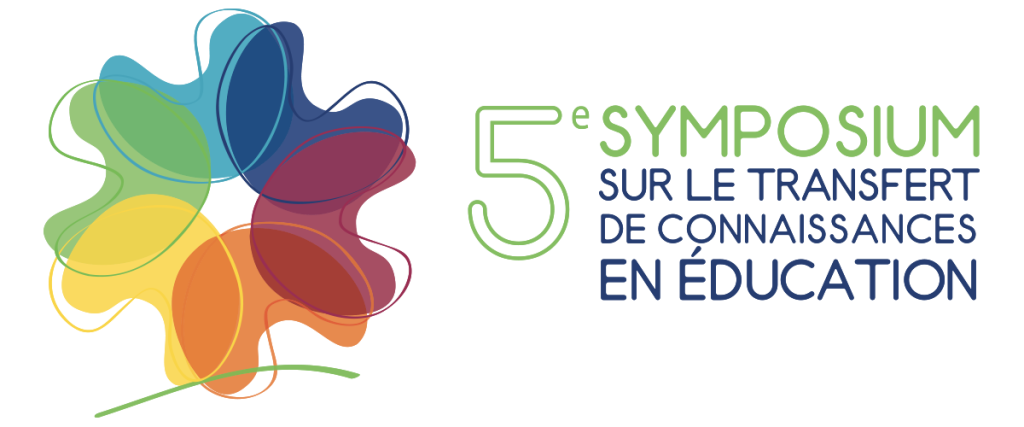
Journée Parents de l’Institut des troubles d’apprentissage
La prochaine Journées Parents de l’Institut des troubles d’apprentissage aura lieu le 21 janvier. Découvrez la programmation et inscrivez-vous.

En terminant, voici 5 ingrédients pour vivre ta meilleure année en 2023
Une suggestion de notre collègue Alexandra Coutlée.
Si vous en voulez encore plus, vous pouvez (re)voir les #Édubrèves de la semaine dernière.
On se retrouve bientôt! N’hésitez pas d’ici là à nous « tagguer » (en bon français…) sur Twitter (@millaudrey ou @riomarti) pour que nous parlions de votre projet/ressource dans une prochaine revue de la semaine! Passez une excellente semaine.



